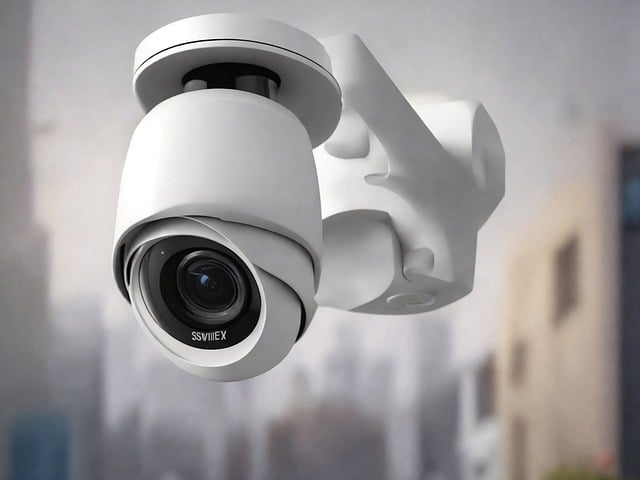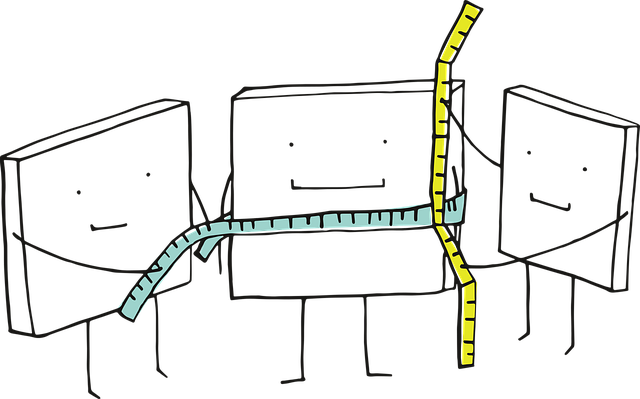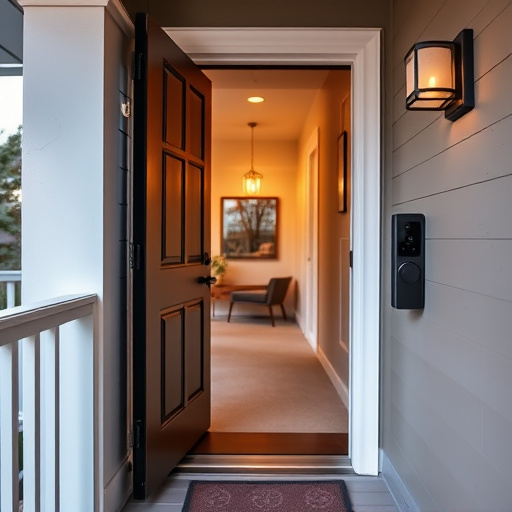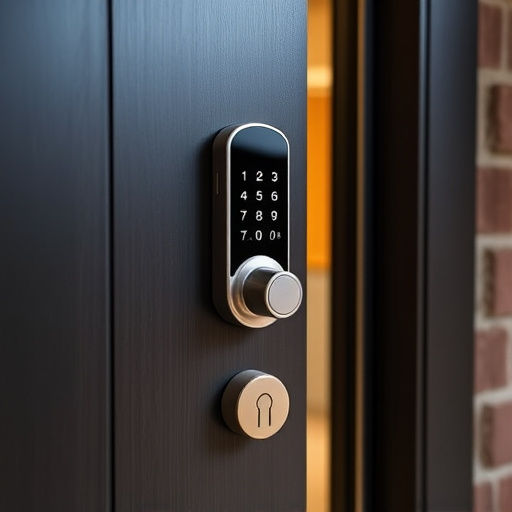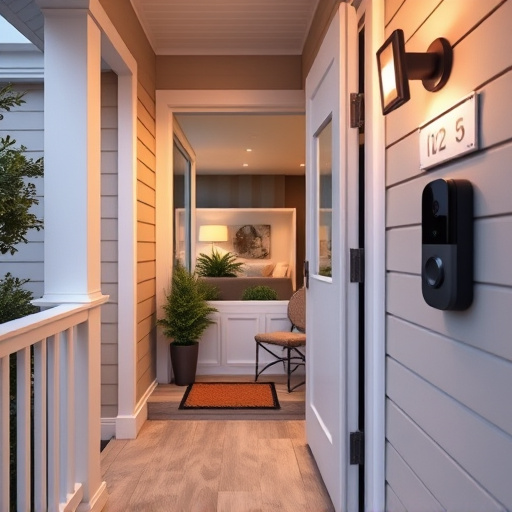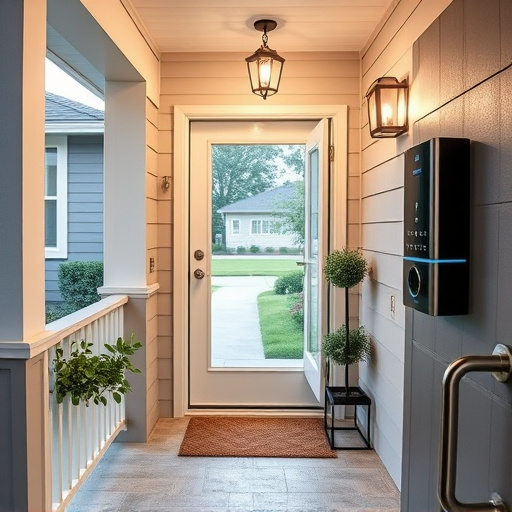Professional security monitoring offers homeowners 24/7 protection, rapid response, and enhanced peace of mind, but it's crucial to weigh the pros and cons before subscribing. This includes evaluating cost, reliability, privacy concerns, and potential drawbacks like false alarms. A thorough security service assessment helps ensure that the chosen solution aligns with individual needs and budget, balancing the benefits of home monitoring against its drawbacks.
“In today’s digital era, ensuring home security has become paramount. Professional security monitoring offers a comprehensive solution, but it comes with its own set of advantages and disadvantages. This article delves into the intricacies of ‘professional security monitoring,’ exploring how it can enhance safety and provide peace of mind. Weighing the ‘home monitoring pros and cons’ is crucial for making informed decisions. Additionally, learn about evaluating security service quality and assessing your needs to choose the best monitoring service, considering factors like response time, data privacy, and cost.”
- Understanding Professional Security Monitoring: A Comprehensive Overview
- Home Monitoring Pros and Cons: Weighing the Advantages Against the Disadvantages
- Benefits of Home Security Monitoring: Enhanced Safety and Peace of Mind
- Drawbacks of Monitoring Services: Potential Issues and Challenges
- Evaluating Security Service Quality: Key Factors to Consider
- Assessing Your Needs: When and How to Choose a Monitoring Service
Understanding Professional Security Monitoring: A Comprehensive Overview

Home Monitoring Pros and Cons: Weighing the Advantages Against the Disadvantages

When evaluating home monitoring, understanding both its advantages and disadvantages is crucial. Professional security monitoring offers significant benefits, such as 24/7 protection, rapid response to alerts, and peace of mind. It can deter burglaries, provide emergency assistance during accidents or medical emergencies, and even help reduce insurance costs. Advanced systems offer remote access via smartphone apps, allowing homeowners to monitor their properties from anywhere.
However, drawbacks exist. Monitoring services can be costly, with setup fees and monthly subscriptions adding up over time. Privacy concerns arise due to the constant data transmission and potential for unauthorized access. Additionally, false alarms are a common issue, leading to unnecessary stress and potentially damaging relationships with neighbors. The effectiveness of monitoring also depends on factors like system quality, internet connectivity, and user proficiency, highlighting the need for a thorough security service evaluation before making a decision.
Benefits of Home Security Monitoring: Enhanced Safety and Peace of Mind

Home security monitoring offers a multitude of benefits that significantly enhance safety and provide peace of mind for homeowners. One of the primary advantages is the round-the-clock surveillance, ensuring your home is protected even when you’re away. Professional security monitoring services employ advanced technology, such as high-definition cameras with motion detection, to detect potential intruders swiftly. This real-time alert system allows homeowners to respond quickly to any threat, deterring criminals in the process.
Moreover, these monitoring services often integrate with smart home devices, allowing for automated responses like lighting adjustments or playing pre-recorded messages that startle intruders. The data collected by security cameras and sensors can also be used to assess and improve your overall home security posture through a security service evaluation. This comprehensive approach to home protection not only provides immediate safety but also empowers homeowners with valuable insights to fortify their defenses.
Drawbacks of Monitoring Services: Potential Issues and Challenges

While professional security monitoring offers a range of benefits, it’s crucial to also consider potential issues and challenges before signing up for any service. One significant drawback is cost; these services can be expensive, with setup fees, monthly subscriptions, and additional charges for specific features or advanced equipment. This financial commitment might not be feasible for everyone, especially those on tight budgets.
Another concern revolves around privacy and data security. Users need to trust that their personal information, including video feeds and home activity logs, is stored and transmitted securely. Data breaches or unauthorized access could compromise safety and privacy. Moreover, some monitoring services collect and share user data with third parties, raising concerns about surveillance and personal freedom. A thorough security service evaluation should always be conducted to assess these potential drawbacks.
Evaluating Security Service Quality: Key Factors to Consider

When evaluating professional security monitoring services, several key factors come into play. First and foremost, consider the reliability and responsiveness of the monitoring center. A top-tier service should have round-the-clock staff who are trained to handle alerts promptly and efficiently, ensuring quick response times to any potential issues. The technology used for home monitoring is also critical; advanced systems with multiple sensors and remote access capabilities offer greater peace of mind.
In addition, assess the variety and customization options of security packages. Reputable monitoring services cater to diverse needs, providing flexible plans that can be tailored to specific homes and lifestyles. Benefits include 24/7 backup, automated alerts, and remote surveillance, all of which enhance home safety. However, drawbacks may include cost, contract obligations, and potential privacy concerns related to data storage and third-party access. A thorough monitoring service assessment should weigh these factors to ensure the chosen option aligns with individual security requirements.
Assessing Your Needs: When and How to Choose a Monitoring Service
